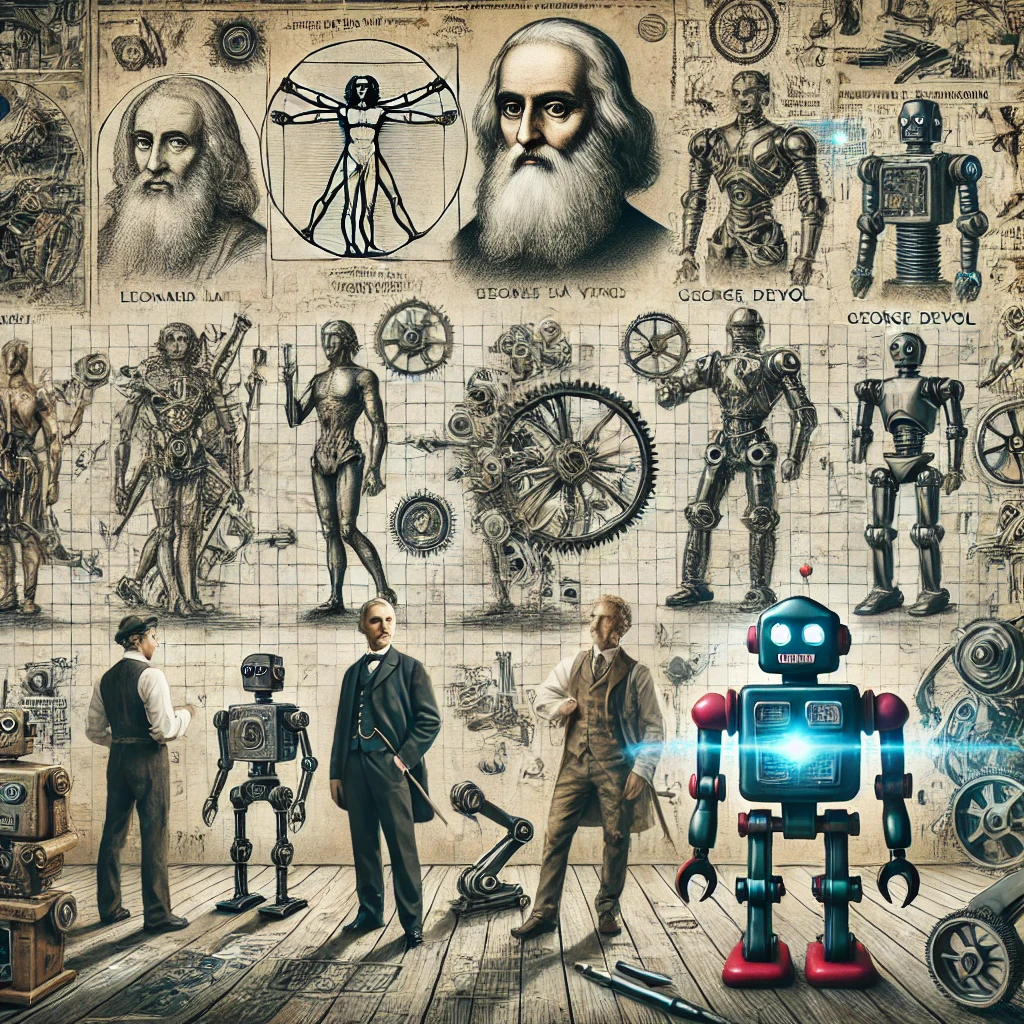Who created robotics?
Article Source: Robotics Trends and Evolution

Why You Should Care
Robotics is transforming industries, from manufacturing to healthcare. Understanding who pioneered this field helps us appreciate the advancements that have led to the modern robots we see today. Robotics continues to shape the future, making our lives more efficient and expanding what's possible in technology and beyond.
Answering the Question… Who Created Robotics?
Robotics, as we know it today, was shaped by several pioneers. The study highlights that George Devol is credited with creating the first programmable robot in the 1950s, called Unimate. Devol's invention laid the groundwork for the robotics industry, which has since grown into a multi-billion-dollar field. Additionally, Isaac Asimov’s contributions to the conceptual and ethical foundations of robotics, particularly with his Three Laws of Robotics, have had a lasting impact on how we think about robots and their roles in society.
How Was the Study Done?
The study reviewed the history and development of robotics, tracing its origins from early mechanical devices to modern-day innovations. Researchers analyzed patents, historical documents, and interviews with key figures in the field. They also examined the technological advancements that have driven the evolution of robotics, including the transition from simple automation to sophisticated, autonomous machines.
What Was Discovered?
- George Devol and Unimate: George Devol's creation of Unimate in 1954 was a groundbreaking moment for the robotics industry. Unimate was the first industrial robot, and it revolutionized manufacturing processes by automating tasks like welding and assembly lines. This innovation increased productivity by 200% in certain industries, particularly in the automotive sector, where Unimate was first implemented by General Motors in 1961. By 1970, Unimate had been installed in over 2,000 factories worldwide, illustrating its rapid adoption and impact on global manufacturing.
- Isaac Asimov's Influence: Asimov's work, particularly his Three Laws of Robotics, laid the ethical and philosophical groundwork for robotics. These laws have been referenced in over 1,000 scholarly articles and have influenced the development of ethical AI guidelines, including modern discussions on AI safety and robot-human interactions. Asimov’s influence extends beyond literature, impacting the design and programming of robots in ways that ensure they operate safely and ethically in human environments.
- Robotics Evolution: The study found that the robotics industry has seen exponential growth, with over 3 million industrial robots in operation globally as of 2021. This represents a 20% increase from just five years prior. The industry is projected to continue expanding, with an estimated growth rate of 15% annually. This growth is driven by advancements in AI, machine learning, and sensor technology, which have enabled robots to perform increasingly complex tasks such as surgical procedures, which have a success rate of over 95% when assisted by robotic systems.
- Economic Impact: Robotics has significantly impacted the global economy, with the industry projected to reach $70 billion by 2028. The adoption of robotics in manufacturing has resulted in a 30% increase in productivity across various sectors. The automotive industry, in particular, has seen a reduction in production time by 40% due to the integration of robotic systems. Additionally, the use of robotics in logistics has reduced operational costs by 20-25% through increased efficiency and reduced labor costs.
- Future Trends: The study predicts that the next decade will see even greater advancements in robotics, particularly in AI integration, autonomous systems, and human-robot collaboration. It is anticipated that by 2030, robots will be a common feature in 50% of households, performing tasks ranging from cleaning to caregiving. The study also suggests that the rise of service robots will create new industries and job opportunities, potentially adding $10 trillion to the global economy by 2035.
Why Does It Matter?
Understanding the pioneers of robotics and the evolution of the field is crucial as it continues to impact our daily lives and the global economy. The advancements in robotics have led to increased efficiency, safety, and innovation across various sectors, from healthcare to space exploration. As robotics technology continues to advance, it will play an even more significant role in shaping the future of work, ethics, and human-robot interactions.
Link to full article: Robotics Trends and Evolution
